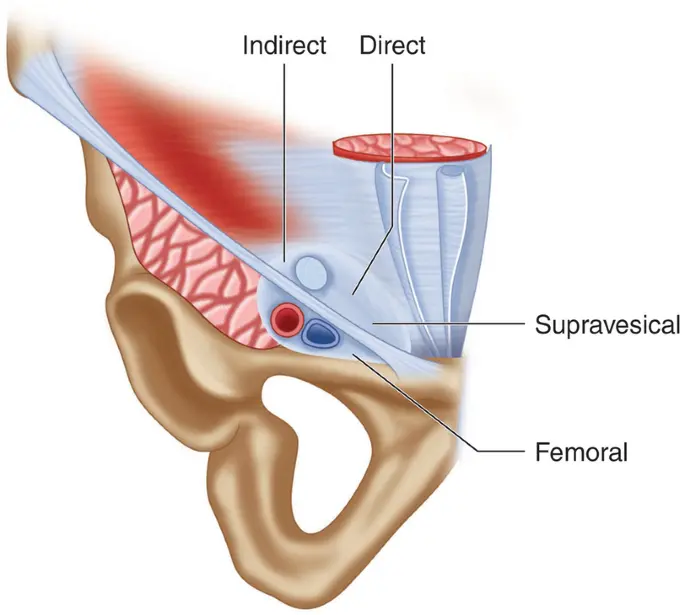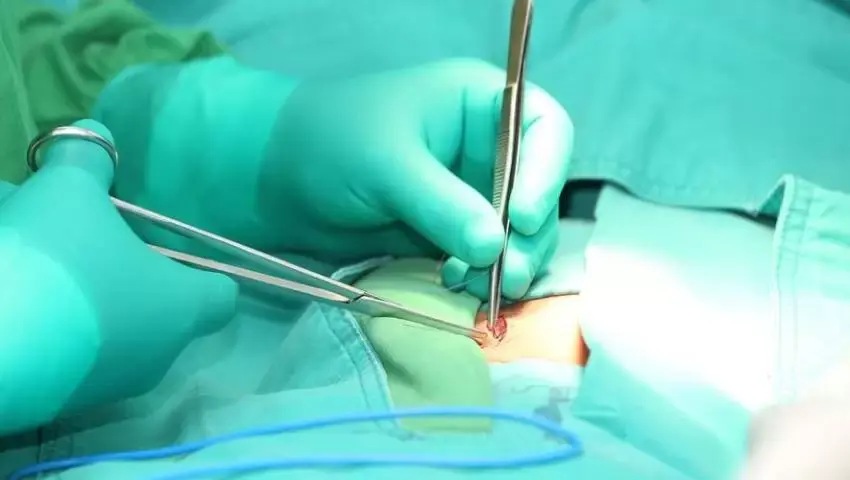Femoral hernia
Femoral hernia is a less common but potentially serious type of hernia that often requires surgical correction. Laparoscopic femoral hernia repair offers a minimally invasive solution with faster recovery and reduced pain.
- Home
- Service
- Femoral hernia

Description
A femoral hernia occurs when abdominal tissue pushes through the femoral canal — a narrow passage near the groin and upper thigh. It can present as a lump or discomfort in the upper thigh, often mistaken for an inguinal hernia.
Laparoscopic surgery involves small incisions through which a camera and instruments are inserted. The herniated tissue is repositioned, and the femoral canal is reinforced with a surgical mesh. This technique reduces trauma to surrounding tissue and shortens hospital stays.
Laparoscopic surgery involves small incisions through which a camera and instruments are inserted. The herniated tissue is repositioned, and the femoral canal is reinforced with a surgical mesh. This technique reduces trauma to surrounding tissue and shortens hospital stays.
Conditions Treated
- Painful groin bulge
- Strangulated femoral hernia
- Bowel obstruction due to hernia
- Recurrent hernias in the thigh region
- Incarcerated hernia (non-reducible)
Tests and Treatments Offered
- Physical examination
- Ultrasound of groin
- CT Scan (for large or complicated hernias)
- Diagnostic laparoscopy
- Laparoscopic femoral hernia repair with mesh
- Post-op pain relief and antibiotics
Special Offer on Femoral Herina
Actual Price
₹60,000
₹50,000/- Only
Estimated Stay: TBD
Book Appointment
How it works
Procedure and Process Treatment

Diagnosis & Pre-op Evaluation
A detailed examination and imaging confirm the femoral hernia. Surgical repair is recommended in most cases.

Preparation for Surgery
General anesthesia is administered. You'll be advised to fast and undergo pre-surgical blood tests.

Laparoscopic Repair
Small keyhole incisions are made. The hernia is pushed back, and a synthetic mesh is placed to reinforce the canal.

Recovery & Aftercare
Patients are often discharged the same day. Most resume daily activities within 3–5 days, with full recovery in a couple of weeks.

Safe, Scar-Free Solution
Laparoscopic femoral hernia repair offers excellent results with minimal scars, quick discharge, and low recurrence. It’s the modern, safe way to address a condition that, if ignored, can lead to dangerous complications.
Frequently Asked Questions
Here are some important questions patients often ask:
Yes, it can become strangulated, cutting off blood supply to tissues — which is a surgical emergency.
It's not advisable. Even small femoral hernias carry a higher risk of complications and should be repaired early.
Most patients can walk within hours post-surgery and resume light activities in 2–3 days.


